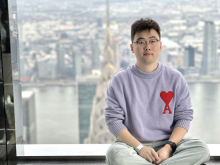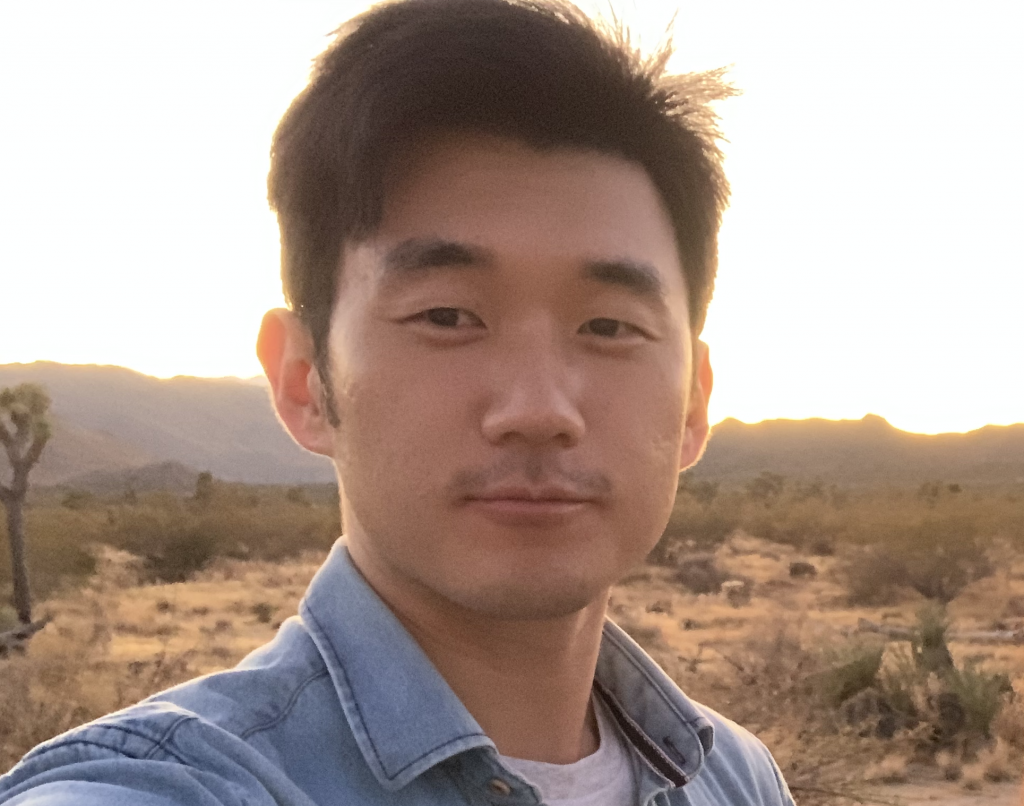HCIL Awards
HCIL Maryland Way Award for Research Excellence
A committee selects one advanced PhD student for the award who best exemplifies research excellence unique to the HCIL. Details on these uniquely HCIL set of markers of research excellence can be found in Ben Shneiderman’s original article on the “Maryland way” of innovation, as well as Niklas Elmqvist’s recent reintroduction of the concept, which added the 8th item.

2024 Winner
Jiasheng Li, Computer Science
Advisor: Huaishu Peng
2023 Winner
Salma Elsayed-Ali, INFO
Advisor: Joel Chan & beth bonsignore

2022 Winner
Alisha Pradhan, INFO
Advisor: Amanda Lazar

2021 Winners
Emma Dixon, INFO
Advisor: Amanda Lazar
Jonggi Hong, Computer Science
Advisor: Hernisa Kacorri

2020 Winner
Kyungjun Lee, Computer Science
Advisor: Hernisa Kacorri
NSF Yahoo! – HCIL Research Award 2013
Winner
Beth Bonsignore: for her design and implementation of an Alternate Reality Game (ARG) for middle schoolers and a study whose findings have had an impact in both HCI and Learning Sciences’ communities.
Honorable Mention
Jason Yip: for his work examining how children’s ownership of science learning evolves and what factors of ownership HCI researchers need to consider when developing educational technologies to support STEM learning.
Yahoo! – HCIL Data Visualization Research Award 2013
Winner
Cody Dunne: for motif simplification that replaces the repeating patterns or motifs in a network with simple glyphs to reduce visual complexity and new Group-in-a-Box layouts that subdivide large, dense networks using attribute- or topology-based groupings.
Honorable Mention
Megan Monroe: for concepts, designs, and a system to display, simplify, and query temporal event records consisting of both point events (events that occur at a single point in time) and interval events (events with both a start time and an end time).
HCIL Google Best Student Research Award 2012
This award recognizes outstanding research by students from the Human-Computer Interaction Lab. The award is for cumulative work including design, engineering, study, writing and presentations. The criteria include a balance of creativity, innovation, impact, and thoroughness.
Winners ($250 each)
Dana Rotman: For diligent theory-driven work to understand the motivations of professional scientists and citizen scientists to contribute to the Encyclopedia of Life – by mixed methods of survey and interview produced insights that are valuable to this and other citizen science projects.
Chang Hu: For a fresh approach to an important problem – by using crowds of people that speak one language to collectively translate text, with thorough evaluation, and a well-engineered publicly available deployment, this shows the potential of combining human and computer capacities.
Honorable Mention:
John Alexis Guerra Gomez: For innovative design and development of a visual analytic tool to compare evolving tree structures such as budget data.
Greg Walsh: For a creative way of applying participatory design, then implementing and evaluating a tool to support distributed teams of children.


